Publications
Articles, publications, books, tools and multimedia features from the U.S. Institute of Peace provide the latest news, analysis, research findings, practitioner guides and reports, all related to the conflict zones and issues that are at the center of the Institute’s work to prevent and reduce violent conflict.

Tegan Blaine on Climate Change and Peacebuilding
After the annual PeaceCon featured climate change as one of the conference’s main themes, USIP’s Tegan Blaine says, “It’s no longer possible to say that climate change does not intersect with peacebuilding. The realities are there … we need to be more honest about what the likely impacts are going to be.”
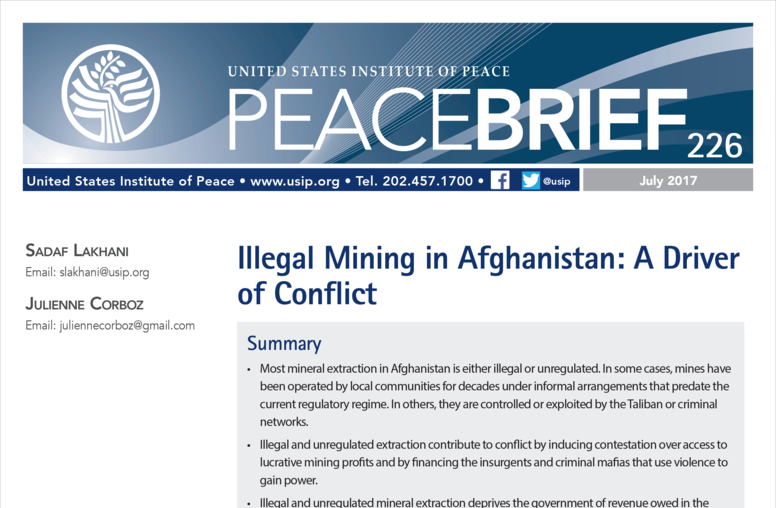
Illegal Extraction of Minerals as a Driver of Conflict in Afghanistan
Based on qualitative surveys and focus group discussions with communities in four Afghan provinces, this Peace Brief analyzes how nonstate actor control over small-scale mining sites and illegal extraction contributes to conflict, the local political economy, and the incentive structures that support illegal extraction.
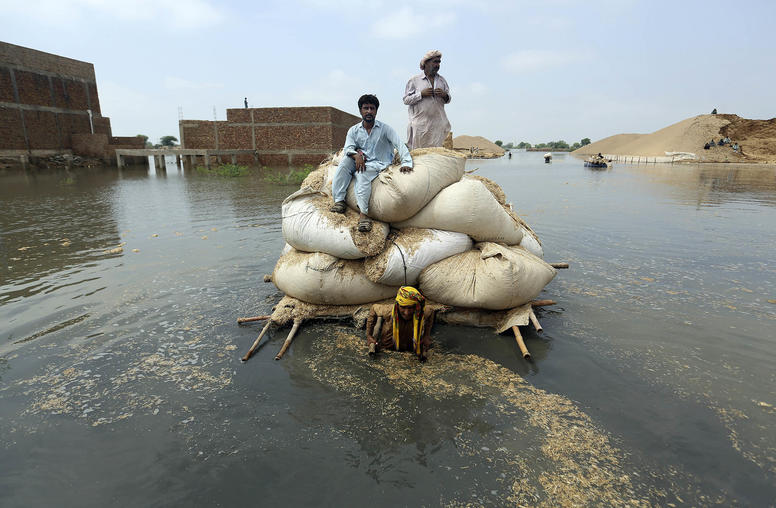
Displaced to Cities: Conflict, Climate Change, and Rural-to-Urban Migration
Countries as geographically diverse as Honduras, Jordan, and Pakistan are experiencing a common challenge—rapid growth in urban populations as conflict and climate-induced disasters push people from rural areas into cities. This report examines the effects of this increased urban migration on both the migrants and the urban environment, as well as the challenges policymakers face. It offers recommendations to help meet the needs of growing urban populations and develop adaptive, resilient systems to better withstand the impacts of climate change and conflict.
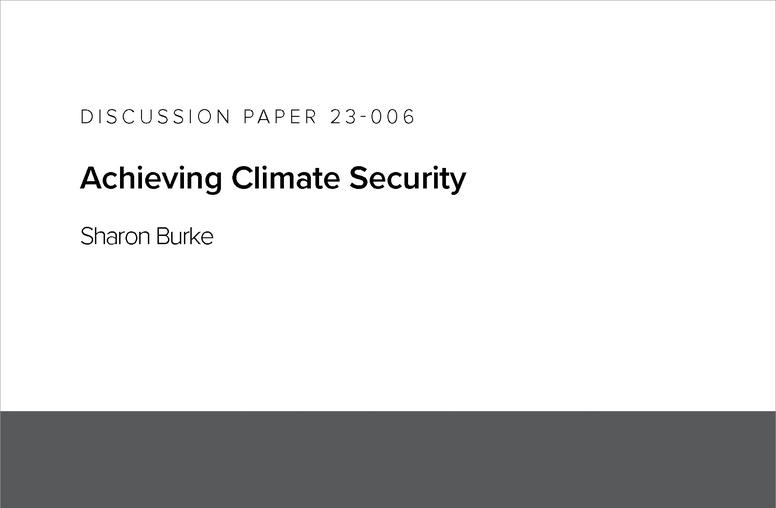
Achieving Climate Security
The ambition of civilian leaders at the Pentagon to bring climate security policy to scale quickly is running into the shoals of a peculiar reality: climate security as a concept is not well defined and controversial, even as climate impacts on societies are mounting. There is clearly a connection between the effects of a changing climate and security—security both in the broadest sense of the safety and well-being of human societies and in the narrower sense of threats to civil order—but there is insufficient climate security research and analysis to guide policy.
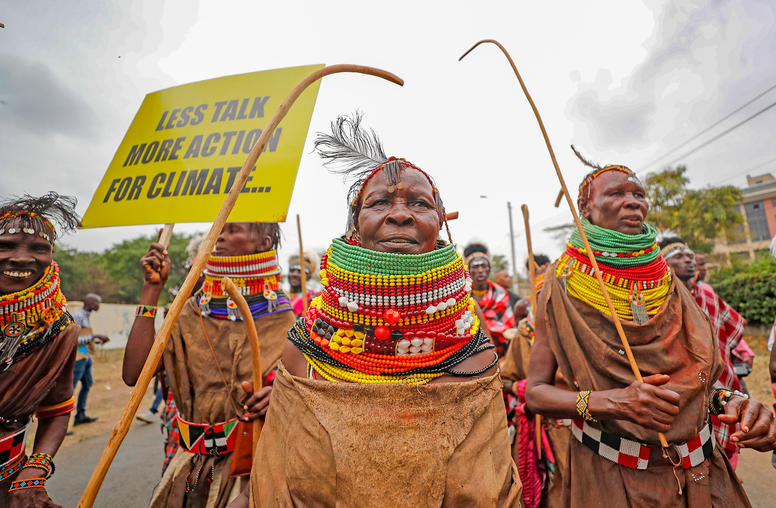
Pragmatic Peacebuilding for Climate Change Adaptation in Cities
The Intergovernmental Panel on Climate Change stated in 2020 that the effects of climate change are already a reality, especially in cities, where they have “caused impacts on human health, livelihoods and key infrastructure.” Climate stresses like heat waves, floods, air pollution, and storms have the potential to exacerbate political tension and fuel violence in urban settings. To address these dynamics, this report discusses what climate change practitioners can learn from the peacebuilding field to help cities adapt more effectively to the coming climate crisis.

Tegan Blaine on the COP26 Summit
As the climate summit wraps up, USIP’s Tegan Blaine says the focus on net-zero commitments overshadowed immediate concerns such as addressing climate-driven migration: “We needed to commit to these things 10 years ago, 20 years ago … and we didn’t. So now the time is quite short.”

Tegan Blaine on How Climate Change Impacts Global Conflict
USIP’s Tegan Blaine says we must be cognizant of how efforts to reduce climate change can exacerbate instability and conflict, as the resources needed for a greener global economy “are in places where the countries are already politically fragile” and higher demand adds more stress to already burdened institutions.
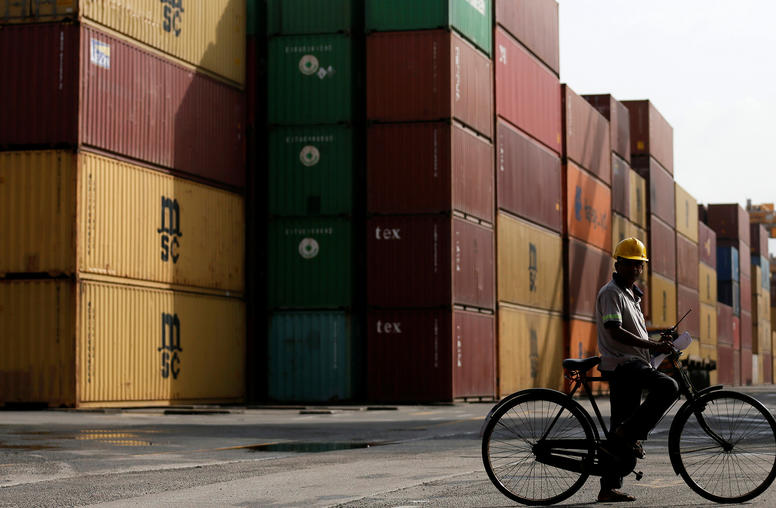
China’s Engagement with Smaller South Asian Countries
When the government of Sri Lanka struggled to repay loans used to build the Hambantota port, it agreed to lease the port back to China for 99 years. Some commentators have suggested that Sri Lanka, as well as other South Asian nations that have funded major infrastructure projects through China’s Belt and Road Initiative, are victims of “China’s debt-trap diplomacy.” This report finds that the reality is...
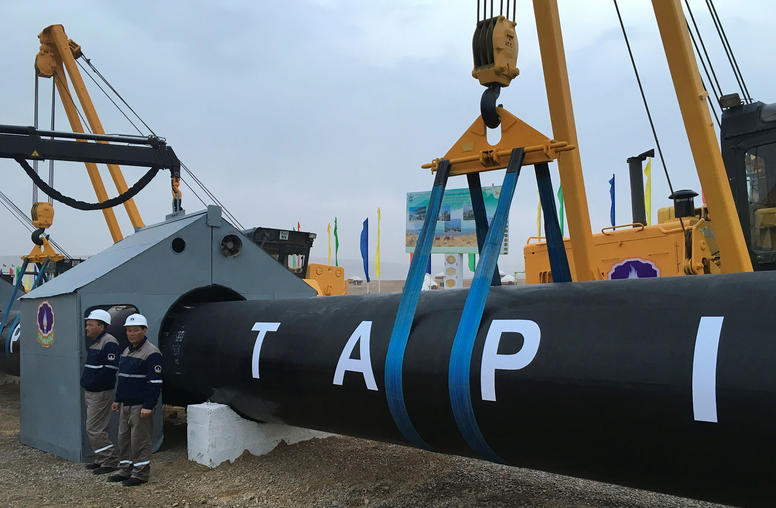
Central Asia’s Growing Role in Building Peace and Regional Connectivity with Afghanistan
In its 2017 strategy for South Asia, the Trump administration called on Pakistan to reduce support for the Taliban and encourage them to enter into peace negotiations. Yet as crucial as Pakistan will be to peace in Afghanistan, a similarly persuasive argument can be made for Afghanistan’s northern neighbors—the Central Asian republics of Kazakhstan, Kyrgyzstan, Tajikistan, Turkmenistan, and Uzbekistan. In this Special Report, Humayun Hamidzada and Richard Ponzio examine the vital economic and political roles these countries can play to support a just and lasting peace in Afghanistan and the region.
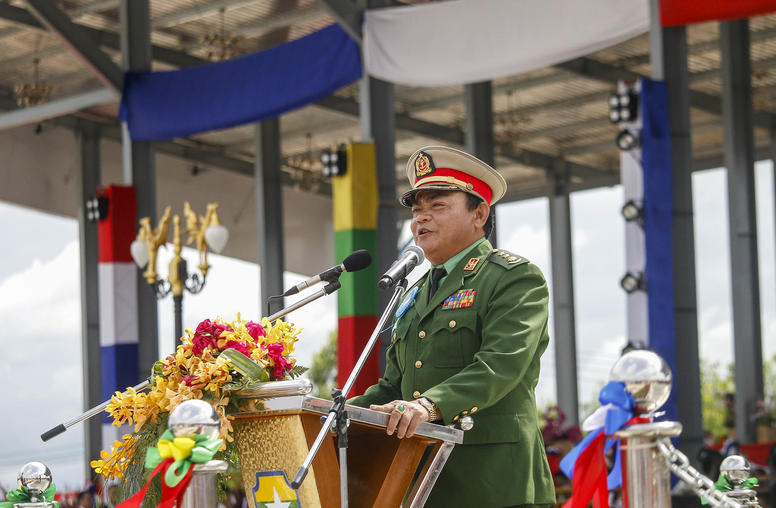
Myanmar’s Casino Cities: The Role of China and Transnational Criminal Networks
Seeking to profit from China's lucrative but illegal gambling market, a shady web of actors has begun building resort cities in Myanmar’s Karen State to cater to Chinese gamblers. This report casts light on the actors behind Myanmar’s illegal gambling sector, their linkages to Chinese government entities and to Myanmar's armed groups and military, and how their actions could upend Myanmar’s prospects for peace.